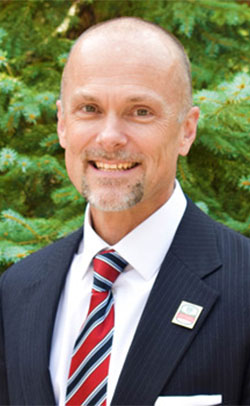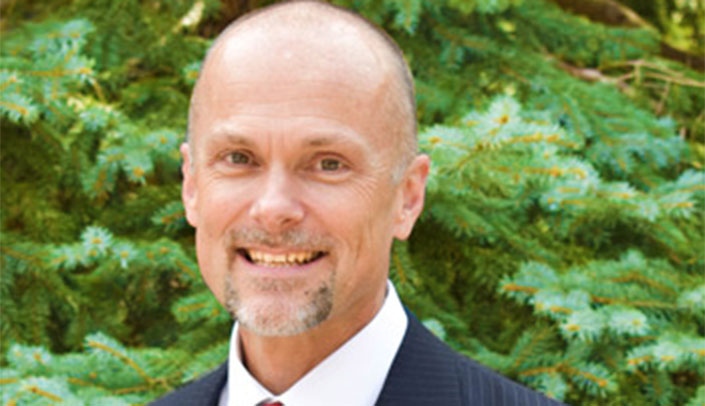 |
Mark Balschweid, Ph.D. |
The Rural Futures Institute (RFI) at the University of Nebraska is now led by Mark Balschweid, Ph.D., professor and head of the University of Nebraska-Lincoln (UNL) Department of Agricultural Leadership, Education and Communication in the College of Agricultural Sciences and Natural Resources. He replaces Connie Reimers-Hild, Ph.D.
Dr. Balschweid, who has worked extensively in evaluating international programs in agricultural and extension education, joins RFI after 11 years in his departmental leadership role. Prior to coming to UNL in 2008, Dr. Balschweid was on faculty at Purdue University in the department of youth development and agricultural education.
“The ability of the Rural Futures Institute to identify solutions and create outcomes by bringing together many different partners — students, faculty and communities of place and practice — is impressive,” Dr. Balschweid said. “The team has found an innovative way to not only convene likely and unlikely collaborators, but support them for individual leadership development and community workforce and economic impact.”
About Dr. Balschweid
Dr. Balschweid holds his doctorate in agricultural education from Oregon State University. He received a Fulbright Fellowship and spent a year teaching and conducting research at Jamaica’s College of Agriculture, Science, and Education. He authored Jamaica’s first bachelor of science degree in agricultural education and continues to consult in Jamaica and the Middle East.
His research interests include the impact of international experiences on student learning and development, evaluation of international agricultural and extension education programs and highlighting the intersection of science and agriculture in secondary and postsecondary curricula.
Dr. Balschweid enters the leadership role of RFI during its launch of the Nebraska Thriving Index and the pilot of an evolved Fellows model.
An initial version of the online application of the Nebraska Thriving Index is already available for use and a print version will be released this summer. Both provide economic developers, local elected officials and community leaders with economic and quality of life indicators to identify thriving and lagging regions so strategic, future-focused investments can be made.
RFI Fellows has grown to incorporate student fellows along with community innovation and faculty fellows. The pilot also includes individual leadership development training and coaching in the area of inclusion through the expertise and guidance of Helen Fagan, Ph.D., RFI director of leadership engagement.
Student fellows from the University of Nebraska at Kearney, University of Nebraska-Lincoln, Saint Louis University and Washington University are currently deployed in Custer County, Garden County, Chadron and Grand Island. They are working on community-defined projects that include community marketing, workforce development, early childhood programming, mental health care access and entrepreneurship.
Students, communities, partners and sponsors are invited to provide feedback on the Nebraska Thriving Index and connect with RFI about a 2020 Fellows experience. Community and student fellows applications will be made available in the coming months.
“The passion and reach the institute’s team has always had to make a true difference in the lives of rural Nebraskans, and rural people around the world, is palpable,” Dr. Balschweid said. “It is imperative that the university continues to create value and tangible outcomes with rural communities in our state, and I am proud to join the Rural Futures Institute, which is doing just that and so much more.”
